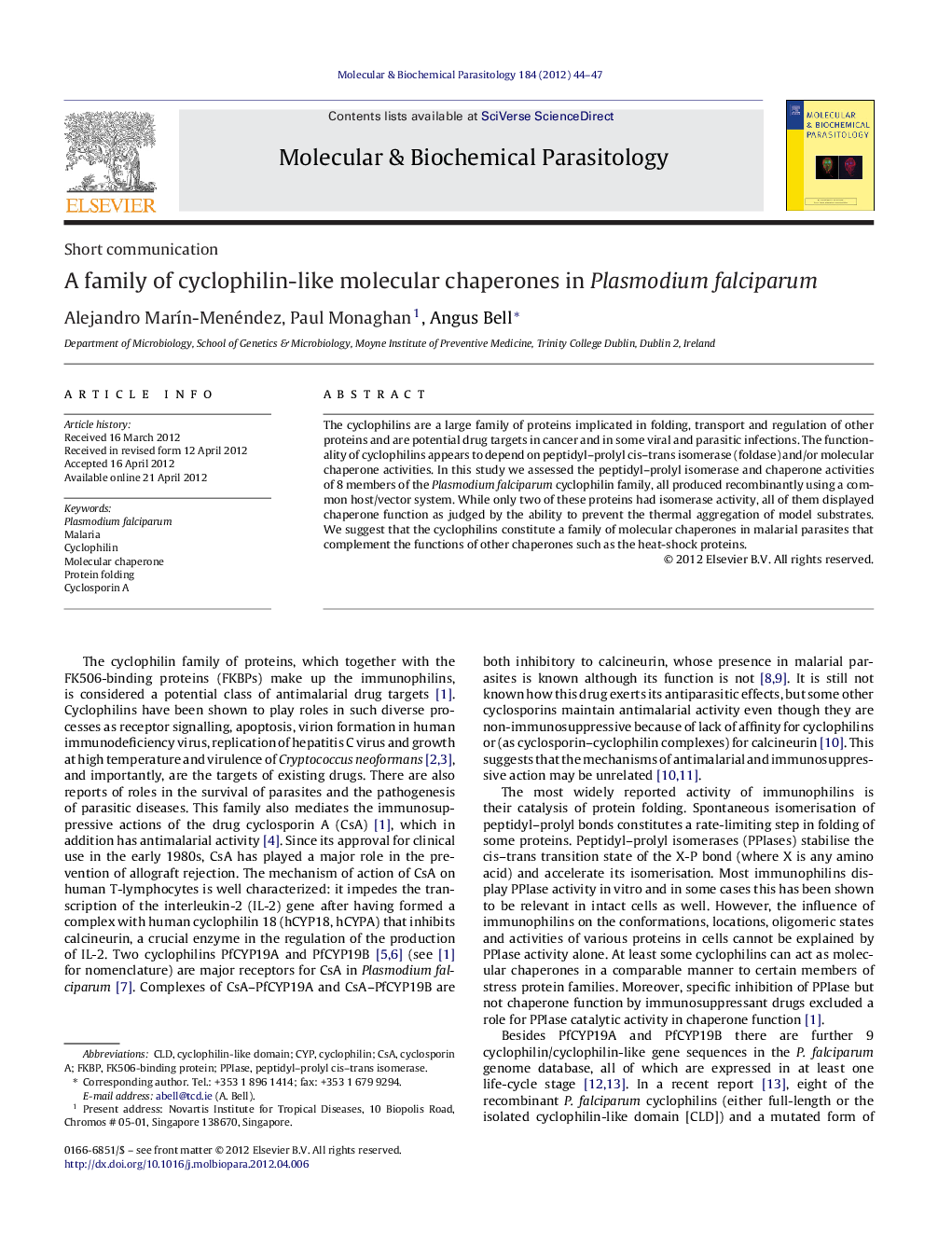| Article ID | Journal | Published Year | Pages | File Type |
|---|---|---|---|---|
| 2829830 | Molecular and Biochemical Parasitology | 2012 | 4 Pages |
The cyclophilins are a large family of proteins implicated in folding, transport and regulation of other proteins and are potential drug targets in cancer and in some viral and parasitic infections. The functionality of cyclophilins appears to depend on peptidyl–prolyl cis–trans isomerase (foldase) and/or molecular chaperone activities. In this study we assessed the peptidyl–prolyl isomerase and chaperone activities of 8 members of the Plasmodium falciparum cyclophilin family, all produced recombinantly using a common host/vector system. While only two of these proteins had isomerase activity, all of them displayed chaperone function as judged by the ability to prevent the thermal aggregation of model substrates. We suggest that the cyclophilins constitute a family of molecular chaperones in malarial parasites that complement the functions of other chaperones such as the heat-shock proteins.
Graphical abstractThermal aggregation of rhodanese (solid line) is prevented by cyclophilin PfCYP19C (dotted line) indicating chaperone action; adding cyclosporin A (green line) has no effect.Figure optionsDownload full-size imageDownload high-quality image (106 K)Download as PowerPoint slideHighlights► A family of cyclophilin and cyclophilin-like proteins in P. falciparum was characterized biochemically. ► All of the recombinant cyclophilins showed molecular chaperone function using model substrates. ► Chaperone function was not affected by cyclosporin A. ► Only two of the recombinant cyclophilins displayed peptidyl–prolyl isomerase activity.
